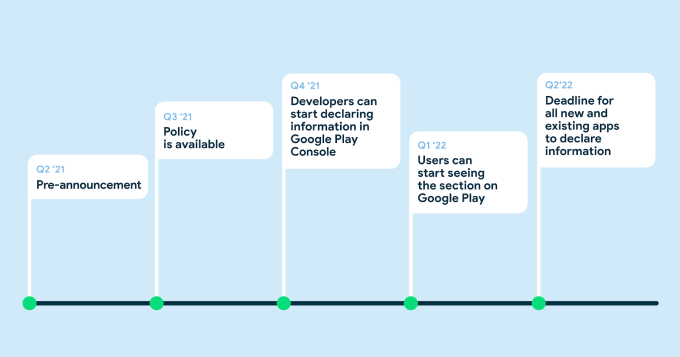GM might be best known for the millions of Buick, Cadillac, Chevrolet and GMC-branded vehicles it designs, produces, finances and sells each year. But it also has a burgeoning incubator, where a team of 600 employees are working to develop 20 new businesses with a total addressable market of about $1.3 trillion.
A few of the first startup fruits have already come to bear, including OnStar Guardian, OnStar Insurance, GM Defense and most recently, BrightDrop — the commercial electric vehicle delivery business that launched in January. Pam Fletcher, a veteran at GM and vice president of the company’s Global Innovation team, is at the center of this effort and helped shepherd BrightDrop from idea to startup graduate. And she’s not done.
An engineer by training, Fletcher has been given a lofty directive to turn high-potential innovative ideas into scalable business ventures that drive growth and transform the GM business model beyond traditional automotive. She’s coming to TC Sessions: Mobility 2021, a virtual event scheduled for June 9, to talk about their strategy and what’s coming next.
Fletcher’s experience is broad and global. She has held a variety of leadership positions, guiding the development of GM’s electric vehicle and self-driving portfolio and technologies. Prior to joining the innovation incubator, she was vice president of global electric vehicles at GM. The teams she directed were responsible for the development of two generations of the plug-in hybrid Chevrolet Volt and the all-electric Chevrolet Bolt EV. Her team also led the development of Super Cruise, the automaker’s hands-free highway driver assist system as well as three generations of Cruise AVs.
She also serves as a corporate director of Coherent Inc., a NASDAQ-listed company based in Silicon Valley, and is also a board member of GM Defense LLC. Fletcher was named to Motor Trend’s 2018 and 2019 Power List of auto industry leaders and was one of Fast Company’s “Most Creative People” of 2017. She serves on the board of advisers for the College of Engineering at the University of North Carolina Charlotte.
Fletcher is just one of many of the best and brightest minds in transportation who will be joining us on our virtual stage in June. Among the growing list of speakers is TechCrunch Scale AI CEO Alexandr Wang, Joby Aviation founder and CEO JoeBen Bevirt, investor and LinkedIn founder Reid Hoffman, whose special purpose acquisition company just merged with Joby, investors Clara Brenner of Urban Innovation Fund, Quin Garcia of Autotech Ventures and Rachel Holt of Construct Capital, Starship Technologies co-founder and CEO/CTO Ahti Heinla, Zoox co-founder and CTO Jesse Levinson, community organizer, transportation consultant and lawyer Tamika L. Butler, Remix co-founder and CEO Tiffany Chu and Revel co-founder and CEO Frank Reig.
Stay tuned for more announcements in the weeks leading up to the event. Early Bird sales end this Thursday, May 6. Be sure to book your tickets ASAP and save $100.
( function() {
var func = function() {
var iframe = document.getElementById(‘wpcom-iframe-c46d4d2e3b04e60c0692de74d2411c01’)
if ( iframe ) {
iframe.onload = function() {
iframe.contentWindow.postMessage( {
‘msg_type’: ‘poll_size’,
‘frame_id’: ‘wpcom-iframe-c46d4d2e3b04e60c0692de74d2411c01’
}, “https://tcprotectedembed.com” );
}
}
// Autosize iframe
var funcSizeResponse = function( e ) {
var origin = document.createElement( ‘a’ );
origin.href = e.origin;
// Verify message origin
if ( ‘tcprotectedembed.com’ !== origin.host )
return;
// Verify message is in a format we expect
if ( ‘object’ !== typeof e.data || undefined === e.data.msg_type )
return;
switch ( e.data.msg_type ) {
case ‘poll_size:response’:
var iframe = document.getElementById( e.data._request.frame_id );
if ( iframe && ” === iframe.width )
iframe.width = ‘100%’;
if ( iframe && ” === iframe.height )
iframe.height = parseInt( e.data.height );
return;
default:
return;
}
}
if ( ‘function’ === typeof window.addEventListener ) {
window.addEventListener( ‘message’, funcSizeResponse, false );
} else if ( ‘function’ === typeof window.attachEvent ) {
window.attachEvent( ‘onmessage’, funcSizeResponse );
}
}
if (document.readyState === ‘complete’) { func.apply(); /* compat for infinite scroll */ }
else if ( document.addEventListener ) { document.addEventListener( ‘DOMContentLoaded’, func, false ); }
else if ( document.attachEvent ) { document.attachEvent( ‘onreadystatechange’, func ); }
} )();

Source: Tech Crunch


